Brexit talks: Theresa May in listening mode, says DUP
- Published
- comments
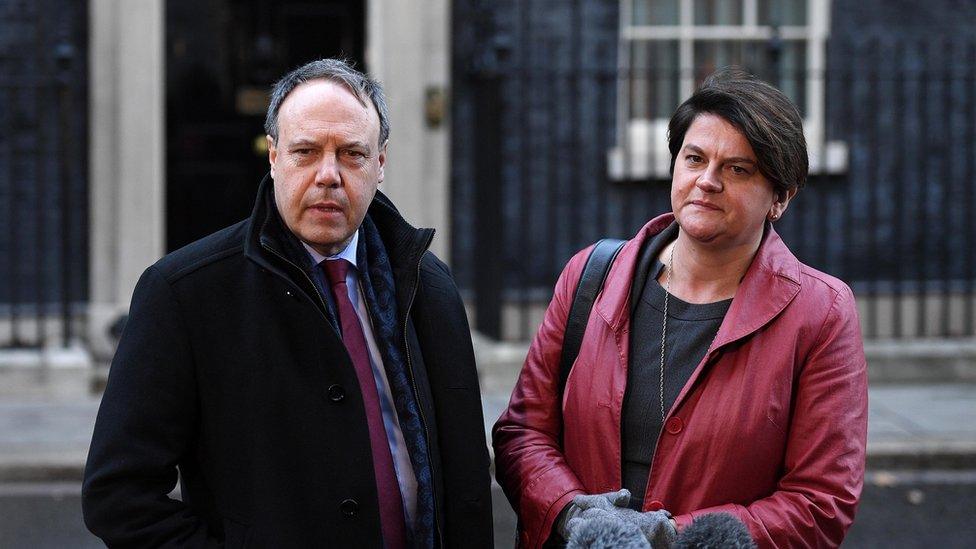
Nigel Dodds and Arlene Foster met Theresa May at Downing Street on Thursday
Prime Minister Theresa May is in "listening mode" and there is optimism that a Brexit deal can still be reached, the DUP has said.
Party leader Arlene Foster and her deputy Nigel Dodds met Mrs May at Downing Street on Thursday morning.
She is holding talks with parties from across Parliament as she seeks to reach consensus on Brexit.
Mr Dodds said engagement with the prime minister had been "good" and talks would continue.
"She has a way through this... address the backstop in a satisfactory way," added Mr Dodds.
The DUP voted against the prime minister's Brexit plan in Parliament on Tuesday, but backed the government on Wednesday in a no-confidence vote, which it won by 325 to 306 votes.
'Clear ask'
The party has been engaged in discussions with the prime minister to set out what it wants her to do.
Mrs May is to publish her new plan on EU withdrawal to Parliament on Monday, with a full debate and the key vote on it scheduled for Tuesday 29 January.
Confused by Brexit jargon on the backstop? Reality Check unpacks the basics.
Speaking outside Downing Street after the meeting, Mrs Foster said the DUP had made a "clear ask" in relation to its concerns around the Irish border backstop.
It is the insurance policy to avoid a return to a hard border between NI and the Republic of Ireland, if no other solution can be found through a wider trade deal with the EU.
The DUP has said the backstop would create a border down the Irish Sea, by placing checks on some goods coming into Northern Ireland from Great Britain.
It believes any differences for Northern Ireland could threaten the integrity of the union.
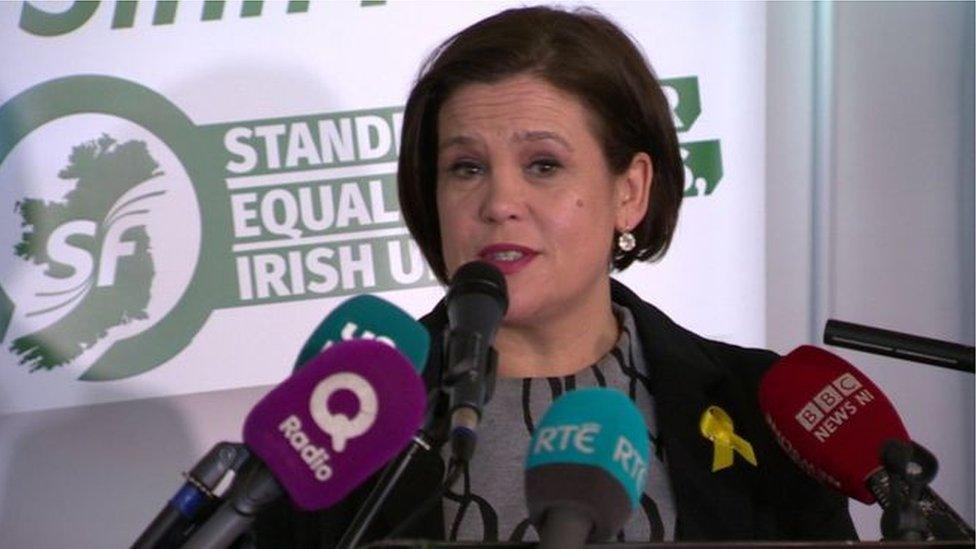
Sinn Féin leader Mary Lou McDonald rejected David Davis' assertion
Meanwhile, Sinn Féin leader Mary Lou McDonald has accused the UK government of a "blatant disregard" for Irish interests and the upholding of the Good Friday Agreement.
Mrs McDonald dismissed a claim by former Brexit secretary David Davis that the government had "a blind spot" when it came to Brexit and Ireland.
"The hostility has been absolutely manifest for some time now," she told BBC Radio Ulster's Good Morning Ulster programme.
"I would regard the Boris Johnson, Jacob Rees-Mogg view of the world to be utterly, not blind to Irish interests, but actively hostile to them.
"I don't think this is a case of blissful ignorance on the part of strong elements of the British establishment.
"I think this is the policy of 'Britannia rules the waves' - a harking back to an imperial past."
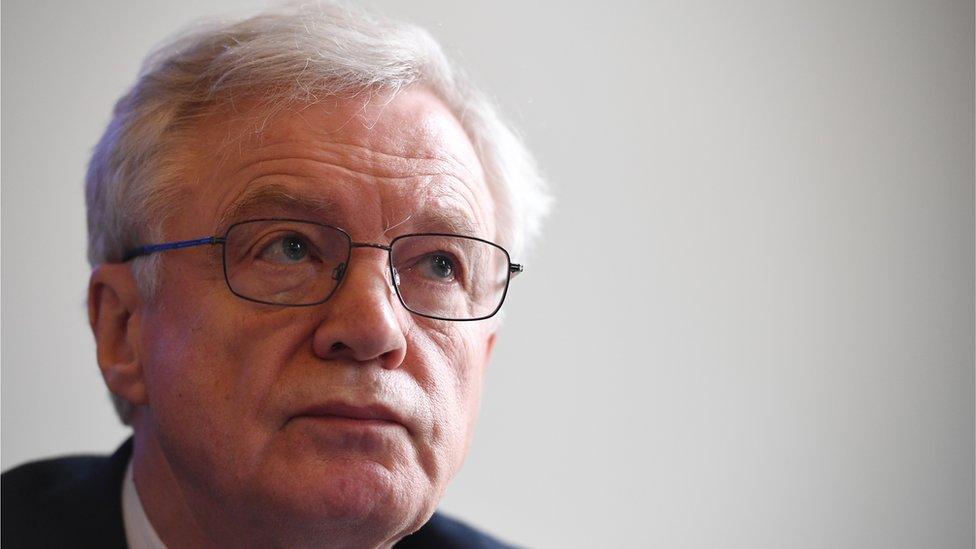
David Davis attended a press conference with DUP leader Arlene Foster this week, calling for a new Brexit deal
The Sinn Féin leader added that the "British state... has more than a blind spot" concerning Ireland.
"They have a blatant disregard for the international obligations under that international agreement (the Good Friday Agreement)."
What did David Davis say?
On Wednesday, Mr Davis told MPs on the EU scrutiny committee at Westminster that the government had failed to understand Ireland's difficulties with the Brexit issue for two reasons.
He cited the lack of a Stormont executive and Leo Varadkar taking over as Irish prime minister in June 2017.
Mr Davis said the changes meant his former department had become "unpredictably handicapped".
Ireland's no-deal Brexit plans 'now being implemented'
The former Brexit secretary said he now believed the government should have put more resources into the issue.
Northern Ireland has been without a functioning devolved government since January 2017.
Mr Davis said his officials had not initially seen it as a big problem for the Brexit process because at the time, the department had a good working relationship with the then Taoiseach (Irish prime minister) Enda Kenny.
Mr Varadkar took over from Mr Kenny as Irish prime minister a year after the EU referendum was held.
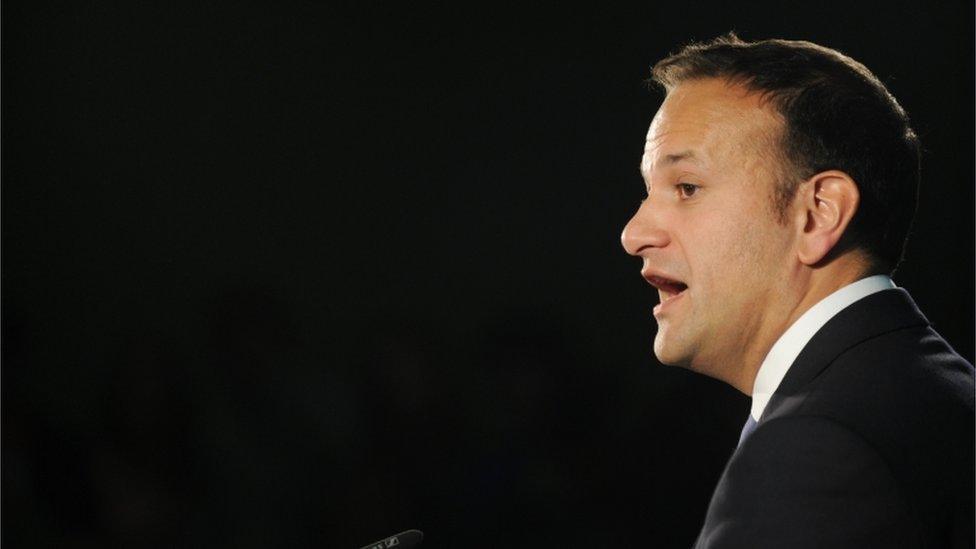
Unionists have been critical of Leo Varadkar's approach to Brexit
"The original taoiseach took a slightly more constructive approach than came later... the attitude of the Irish authorities in the first year was different than what came later," he said.
"It might be a coincidence that it changed at the time Mr Varadkar came in, or it might have been his drive.
"Either way, it changed and we probably didn't react quickly enough, without the Northern Ireland executive sitting on the joint ministerial committee... there was a blind spot there," he said.
In the absence of executive ministers, the head of the NI civil service David Sterling has attended meetings with officials from across the UK to discuss Brexit planning.
Mr Davis, who resigned from the cabinet last July over the prime minister's Brexit plan, said there were not many things he would change during his time as Brexit secretary.
But he said that, with hindsight, he would have put "more resources" into dealing with this particular issue.
- Published17 January 2019
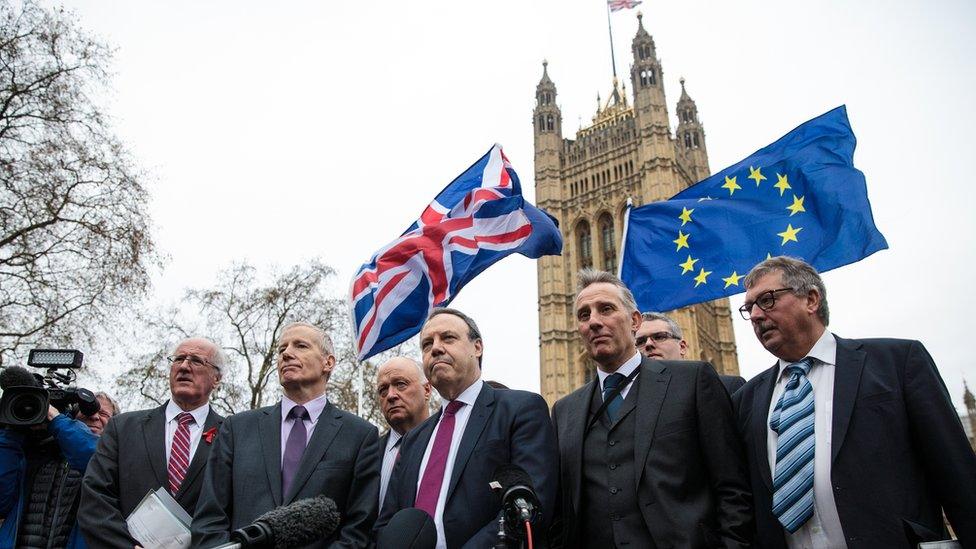
- Published16 January 2019
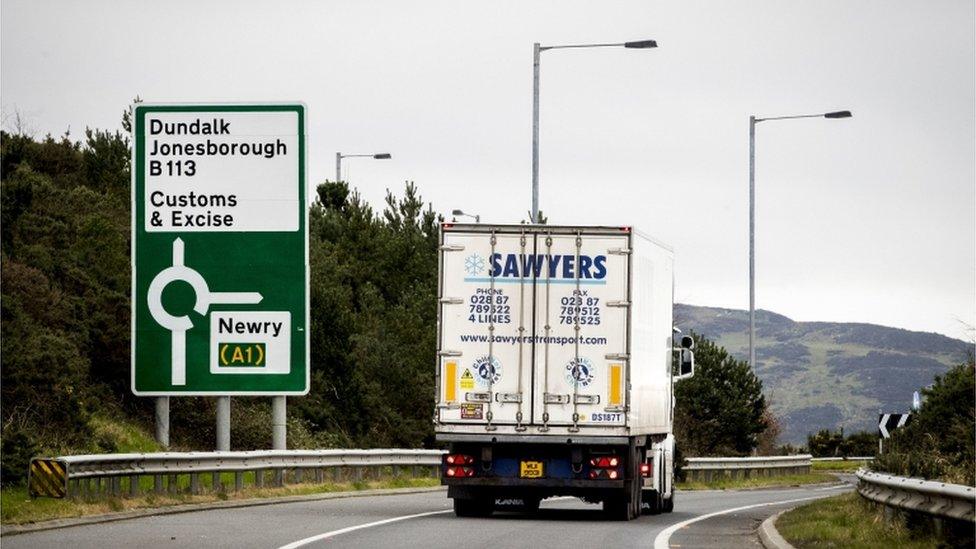
- Published16 January 2019
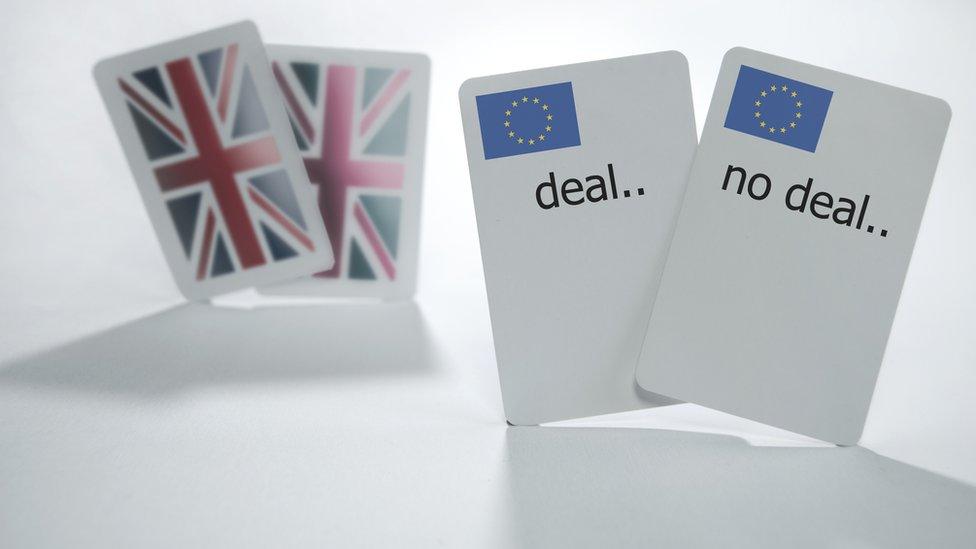
- Published16 October 2019
